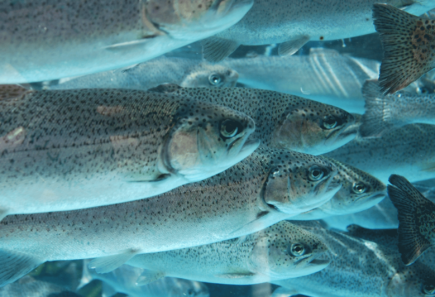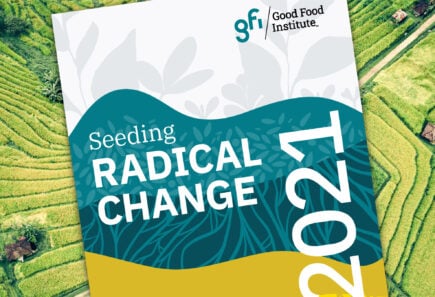
South by Southwest
Join GFI CEO Bruce Friedrich and VP of corporate engagement Caroline Bushnell at the SXSW conference and festival!

Join GFI CEO Bruce Friedrich and VP of corporate engagement Caroline Bushnell at the SXSW conference and festival!

Join our next Seafood Webinar and Informal Mixer (SWIM) event on March 18th to hear from three experts in finfish cell culture about how they are applying learnings from their previous research to cultivated seafood.

Join our next Seafood Webinar and Informal Mixer (SWIM) event on March 18th to hear from three experts in finfish cell culture about how they are applying learnings from their previous research to cultivated seafood.

This explainer dives into the composition and properties of plant proteins, desirable ingredients for plant-based meat, and crop sources for these ingredients. Learn how advances in crop genetics benefit plant-based products in scale, cost, and organoleptic properties.

In 2021, GFI released life cycle and techno-economic assessments for cultivated meat and elevated alternative proteins as a global climate solution at the UN Food Systems Summit and COP26.

This explainer focuses on crop-derived macromolecular ingredients, their applications in plant-based formulations, and protein texturization techniques.

The must-attend virtual event for any company involved in making the global food system more sustainable, kind, and fair for the planet, people, and animals.

This explainer surveys fractionation for extracting raw ingredients from crops, fractionation byproducts, and protein modification methods.

Learn about Dr. Burridge’s research to produce low-cost animal skeletal muscle cells at Northwestern University.

GFI's Claire Bomkamp speaks to The Scientist about the science behind cultivated meat, and its exciting potential.